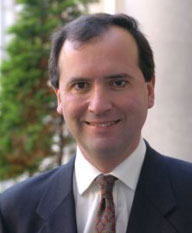

 A warm welcome to you all tonight - This reception comes at the end of a two-day Commonwealth Parliamentary Association workshop conducted by the UK Parliamentary delegation with the National Assembly. The workshop is one of the events marking the fifteenth anniversary of the return of multiparty democracy to Seychelles.
A warm welcome to you all tonight - This reception comes at the end of a two-day Commonwealth Parliamentary Association workshop conducted by the UK Parliamentary delegation with the National Assembly. The workshop is one of the events marking the fifteenth anniversary of the return of multiparty democracy to Seychelles.
I know that Lord Grocott and his colleagues from the UK Parliament have been impressed by the breadth of the discussions on issues ranging from the Separation of Powers, Freedom of Speech, Decorum, Standards and Ethics. These discussions will leave the National Assembly with “food for thought” as The Speaker put it to me last night.
I should like to make a few remarks that place the workshop in an international context.
During a visit to South Africa this month the British Foreign Secretary, David Miliband, referred to what he called “the third wave of democracy”.
Over the last 30 years democratic accountability has replaced authoritarianism in much of the world – Central and Eastern Europe, Asia, Latin America, Africa including the Indian Ocean.
But the Foreign Secretary warned that, today, there is a pause in this democratic advance. In some countries the democratic tide has been halted or reversed. Zimbabwe is an obvious example, but elsewhere the challenge to democratic progress is often more subtle.
Democracy is not just about free and fair elections. That is merely the most basic demand. Constitutions, institutions, civil society, the judiciary, the media, all play a vital role by providing checks and balances and by dispersing power. For example in Kenya the winner-takes-all approaches with highly centralised and strong presidential power has been problematic. Kenya is now testing constitutional reform to share power more evenly.
Why does this matter? It matters because democracy is a universal aspiration. Democracies are more likely to respect human rights, more likely to support open trade. Democracies give people freedom and choices. It is no coincidence that the world’s most prosperous countries are also liberal democracies supporting open trade – Europe, North America, Australia.
Fifteen years ago Seychelles turned its back on one-party rule to adopt a multiparty democratic system. Considerable progress has been made. But many challenges remain as Seychelles develops a properly level political playing field.
These challenges stem from recent history and size of this country. Democracies require a clear divide between State and Party so that people feel truly free to support any political party. There must be equal access to a genuinely free and questioning media which is not afraid to criticise. There are risks associated with long established patronage and vested interests.
The challenge for any Opposition party – a key check and balance of the democratic system – is to maintain unity, build alliances, and sustain a sense of purpose.
The President and the Leader of the Opposition recognise that political polarisation is not in the national interest and have initiated a joint dialogue to address it. I think they both understand that democracies must continue to develop and evolve in response to an ever changing world.
Nowhere can afford to be complacent. In the UK we are continually tinkering with our system, one issue at the moment being that of funding for political parties.
The world faces a difficult period ahead. The economic picture looks grim. The international community needs to work together to tackle potentially catastrophic problems like climate change, terrorism and the proliferation of weapons of mass destruction.
The countries best able to adapt to these challenges will be those with accountable and transparent political system, open and liberalized economies, active civil societies, journalists who scruntinise mercilessly, judges who are completely impartial.
Seychelles has one considerable advantage in all this. Its size means it can be nimble and quick. It can implement change speedily than larger countries.
I offer a toast – to the continued flourishing of democracy in Seychelles and the UK.